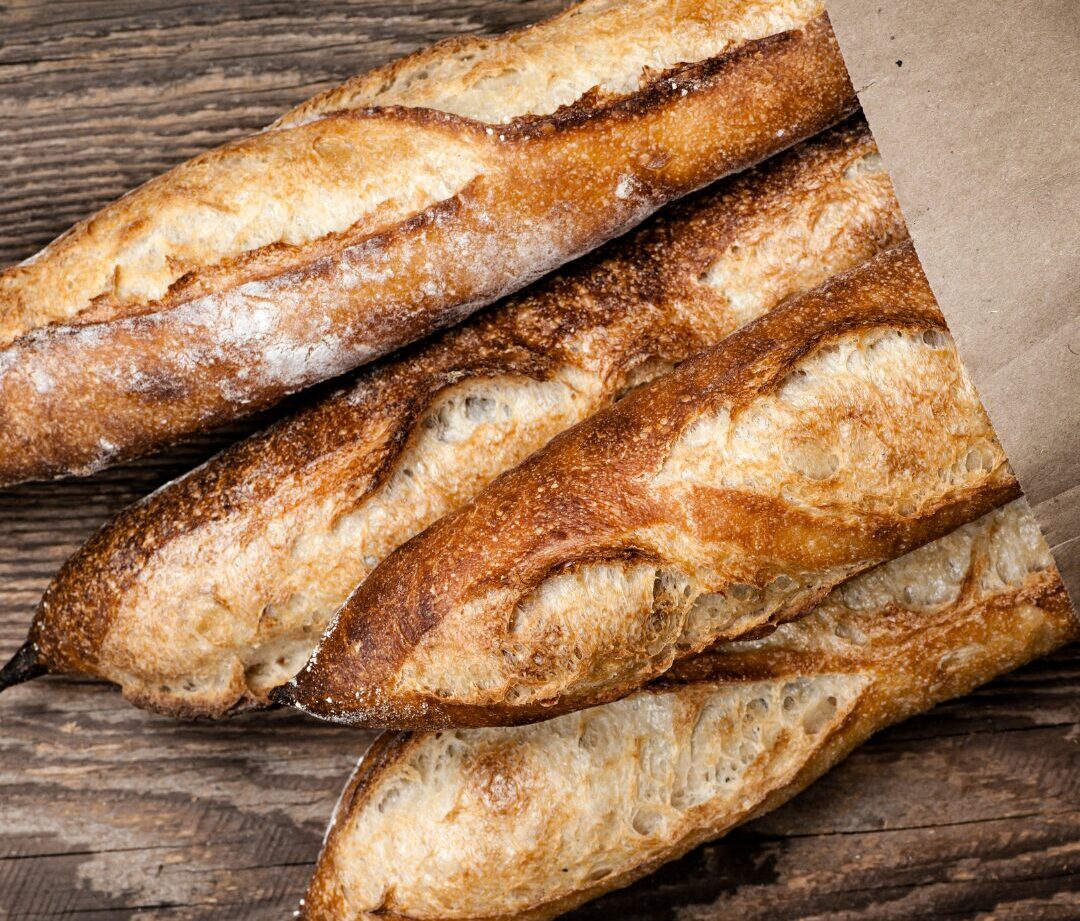The French Baguette: A Delicious Icon and Its Rich History
The French baguette is much more than just bread—it’s a cultural icon, a symbol of French craftsmanship, and a daily staple for millions. This crispy, golden loaf carries centuries of history and tradition that make it an essential part of life in France. Let’s explore the fascinating story behind the baguette and why it remains one of the most beloved culinary treasures of Paris and beyond.
1. The Origins of the Baguette: A Mystery Wrapped in Dough
The exact origin of the baguette remains a subject of debate, but its story likely began in the 19th century. Some of the most popular theories include:
- Viennese Influence: The baguette may have been inspired by long, slender breads introduced to France by Austrian bakers in the 1830s. These bakers used steam ovens, giving the bread its unique crust.
- Napoleon’s Convenience: Another theory suggests that Napoleon Bonaparte demanded a bread that soldiers could easily carry in their uniforms, leading to the creation of the baguette’s elongated shape.
- 1920s Labor Laws: The baguette’s rise in popularity may also be linked to a law passed in 1920 prohibiting bakers from working before 4 a.m. The baguette’s quick baking time made it an ideal solution.
Whatever its true origin, the baguette became a staple of French bakeries by the early 20th century, earning its place in the cultural fabric of the country.
2. What Makes a Baguette Truly French?
Not all baguettes are created equal. In France, the baguette de tradition is protected by strict guidelines under French law. To be labeled as such, the baguette must meet the following criteria:
- Ingredients: Only flour, water, yeast, and salt can be used. No additives or preservatives are allowed.
- Shape: It must be 55 to 65 cm long and weigh approximately 250 grams.
- Handmade: The dough must be kneaded, shaped, and scored by hand.
These strict standards ensure that every bite of a baguette delivers the perfect combination of crunch, chewiness, and fresh-baked flavor.
3. The Baguette Today: A Daily Ritual
The baguette is more than just food—it’s a way of life in France. Here’s why:
- Freshness Matters: Most French people buy their baguette daily to enjoy it at its freshest.
- A Meal Staple: From breakfast with butter and jam to pairing with cheese and wine at dinner, the baguette complements almost every meal.
- A Social Connection: Visiting the local boulangerie (bakery) is a daily ritual, fostering community connections.
In 2022, the baguette was added to UNESCO’s Intangible Cultural Heritage list, recognizing its significance in French culture and the art of artisanal breadmaking.
4. Where to Find the Best Baguettes in Paris
Paris is home to some of the finest baguettes in the world. Here are a few award-winning bakeries to try:
- Le Grenier à Pain (38 Rue des Abbesses, 75018 Paris): A winner of multiple “Best Baguette in Paris” awards.
- Boulangerie Poilâne (8 Rue du Cherche-Midi, 75006 Paris): Known for its traditional breadmaking methods.
- La Parisienne (48 Rue Madame, 75006 Paris): This bakery won the coveted Best Baguette in Paris prize in 2016.
Pro tip: Arrive early in the morning for the freshest baguettes, straight from the oven.
5. Fun Facts About the French Baguette
- Consumption: The French eat over 10 billion baguettes every year.
- Baguette Duel: In the 1990s, two Parisian bakeries famously competed to sell the longest baguette, with some stretching over 6 feet!
- Cultural Symbol: The baguette has appeared in countless films, paintings, and photographs as a quintessential symbol of France.
Why the Baguette Remains Timeless
The French baguette is more than just a food item—it’s a piece of history, a symbol of tradition, and a daily companion in the life of French people. Its enduring popularity speaks to the importance of simplicity, craftsmanship, and connection. For visitors to Paris, tasting a freshly baked baguette is a must-do experience that offers a delicious slice of French culture.
FAQ: Everything You Need to Know About the Baguette
What’s the difference between a regular baguette and a baguette de tradition?
A baguette de tradition is made without additives or preservatives, ensuring a higher quality and fresher flavor.
Why is the baguette so important in France?
The baguette is deeply ingrained in French culture, representing community, simplicity, and tradition.
How should I eat a baguette?
Enjoy it fresh, pair it with cheese or pâté, or simply tear off a piece and savor it on its own.
Conclusion: A Timeless Taste of France
The French baguette is a culinary icon that continues to delight with its simplicity and perfection. Whether you’re strolling through Paris with a warm baguette under your arm or enjoying it at a café with a view of the Eiffel Tower, this humble loaf offers a delicious connection to French culture. Ready to taste history? Head to your nearest boulangerie and experience the magic for yourself.

